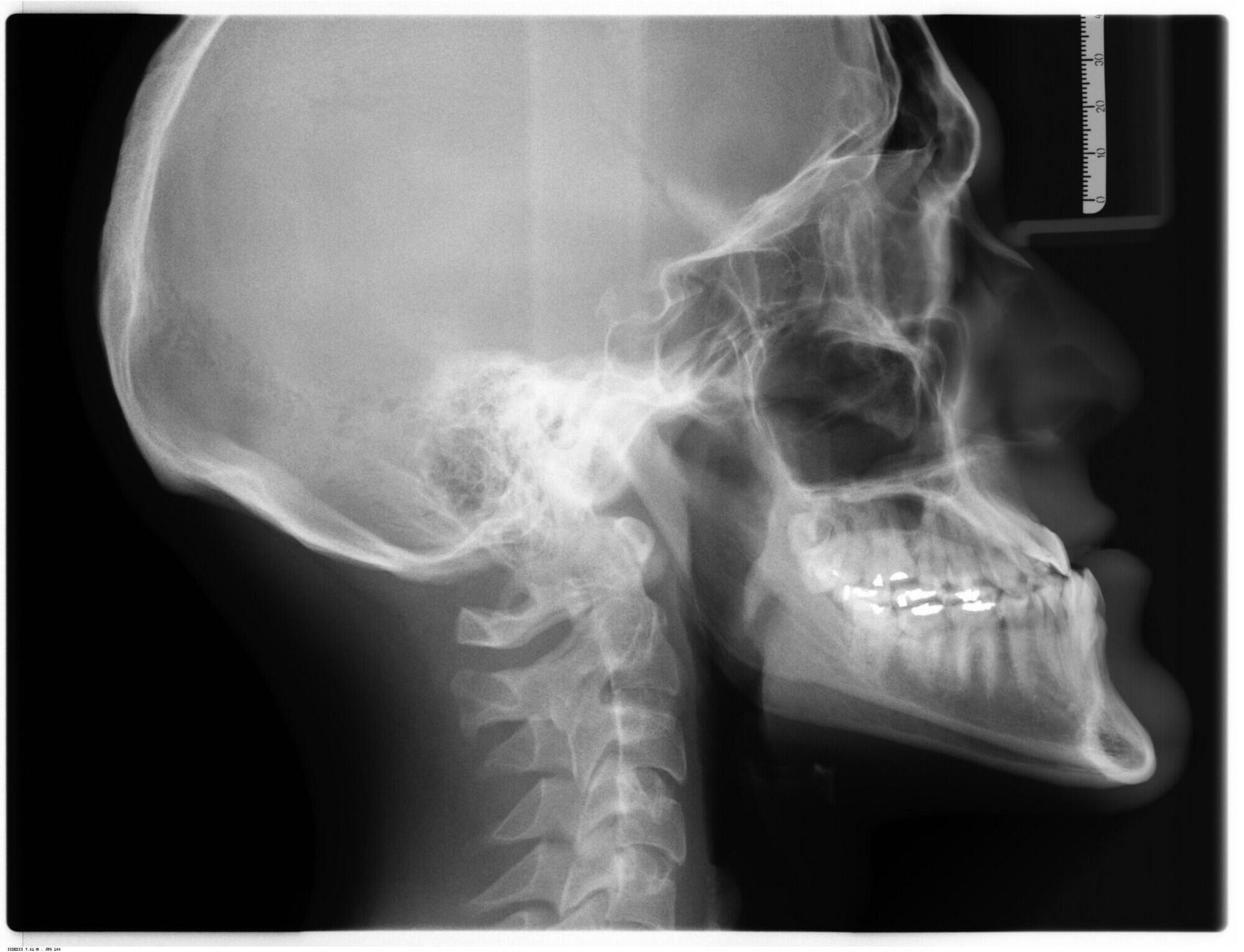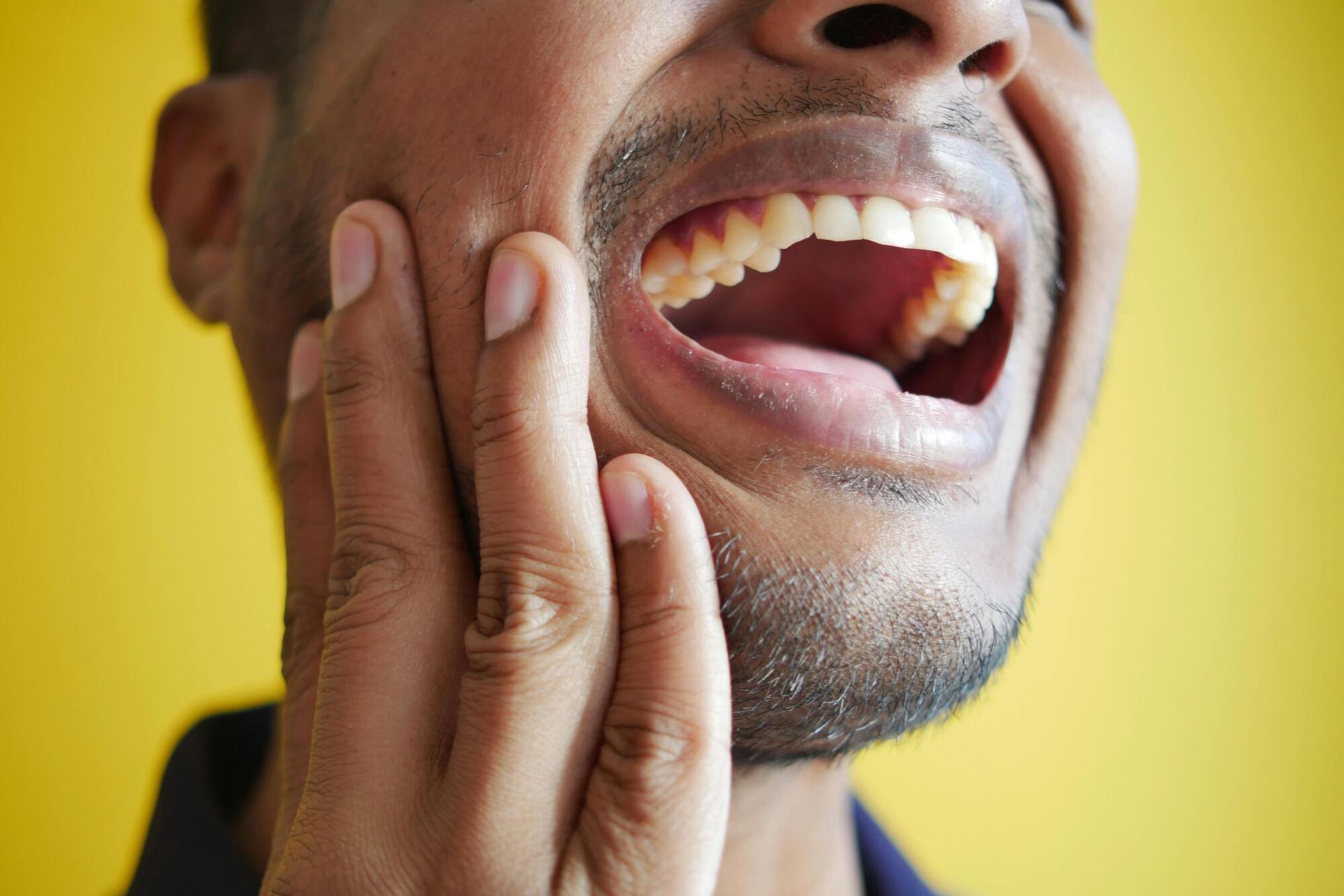The Surprising Connection Between Stress and TMJ Pain
Did you know that TMJ and stress are closely linked? While jaw misalignment and teeth grinding are common causes of TMJ disorders, stress is a surprising yet significant trigger.
The relationship between stress and jaw pain is more complex than it seems. Stress leads to unconscious jaw clenching, muscle tension, and bruxism, which worsens TMJ symptoms over time. The effects of stress on the jaw can create a cycle of discomfort that becomes harder to break.
But there is good news! By addressing physical strain and emotional stress, you can alleviate TMJ pain naturally and find lasting relief. Explore how stress contributes to TMJ pain, and learn about the importance of a holistic treatment approach for lasting relief.
TMJ Disorders: More Than Just Jaw Pain
Jaw pain, headaches, and difficulty chewing may seem unrelated, but they can all stem from a TMJ disorder. The temporomandibular joint (TMJ) is the hinge connecting your jawbone to your skull. When something disrupts this joint, it leads to jaw and tooth pain and limited function.
The "something" usually includes:
- Teeth grinding
- Misalignment
- Poor posture
- Stress
You are not alone if you were not expecting to see the word "stress" on the list. Most people do not associate stress with TMJ issues. The evidence is not just anecdotal.
There is actual science behind stress and jaw pain. A study published in BioMed Research International found a direct link between on-the-job anxiety and TMJ health. As stress levels rise, so do TMJ disorder cases, making awareness and management more important than ever.
How Stress Triggers TMJ Symptoms
Stress has far-reaching effects on the body; the jaw is no exception. Many people are unaware of how their stress manifests physically, especially in the form of jaw pain. Not understanding how anxiety contributes to TMJ pain can make it challenging to find solutions that work.
The Physical Effects of Stress on the Jaw
When stressed, people often clench their jaws without realizing it, leading to stiffness and soreness. Over time, this constant tension makes jaw movements painful and difficult.
Bruxism, or teeth grinding, is another common stress reaction. Many people grind their teeth in their sleep, unaware of the damage it causes. This subconscious habit wears down teeth, strains jaw muscles, and worsens TMJ symptoms.
The connection between emotional and physical stress is complex. Both can trigger reactions in the body that contribute to TMJ flare-ups that can last from a few hours to several days.
The Emotional and Physical Stress Connection
Psychological stress, like work anxiety or personal worries, causes physical reactions. Clenching the jaw, tensing the shoulders, or grinding teeth are all ways the body holds onto stress. The more emotional strain a person experiences, the more tension builds in the jaw.
Physical stress, such as poor posture or long hours at a desk, also contributes to TMJ pain. Slouching or leaning forward strains the jaw and neck muscles. Over time, these physical stressors increase tension and make existing TMJ symptoms worse.
The Feedback Loop Between TMJ and Stress
TMJ disorders can create a problematic feedback loop, where the pain and stress feed into each other. Chronic TMJ pain does not just affect the jaw; it affects your overall quality of life. Everyday tasks, like eating, speaking, or even smiling, become uncomfortable, leading to frustration and increased stress levels.
Heightened stress, in turn, causes the jaw muscles to tighten further, worsening the original pain. It is a tough cycle to break, as the more stressed you become, the more tension builds in the jaw, creating a loop of ongoing discomfort and stress.
Dealing with persistent TMJ pain is mentally and physically exhausting. It is more than just jaw discomfort--it creates a constant underlying sense of frustration. As the pain persists, it can lead to feelings of anxiety, irritability, and overwhelm.
The Mind-Body Approach to Alleviate TMJ Pain Naturally
Mental and physical health connections play a significant role in TMJ pain management. Stress reduction and other lifestyle changes can help. Both are part of a holistic approach to lasting pain relief.
Consider following these TMJ pain Management tips to reduce stress and tension:
- Mindfulness meditation
- Deep breathing exercises
- Jaw stretches and massages
- Progressive muscle relaxation
- Gentle yoga and stretching
Regular movement improves circulation and minimizes stress-related tension. Low-impact activities like walking, swimming, and light strength training can strengthen posture and prevent unnecessary jaw strain.
Using ergonomic workspaces may help. Ergonomics can reduce pressure on the jaw and prevent tension buildup.
Several natural remedies may also help manage TMJ pain. Adjusting your diet and taking supplements can help. Also, ask your doctor about treatment options they may offer.
Using Dental TENSing for TMJ Pain Relief
You will find several options for relieving TMJ pain. Dentists often use TENS therapy to help patients with chronic jaw pain, clenching, and bite misalignment.
Dental TENSing is a specialized therapy that helps relax the jaw muscles and relieve TMJ pain. This method uses low-frequency electrical pulses to stimulate the facial and jaw muscles, reducing tension and improving function.
How Dental TENSing Eases Jaw Pain
This treatment works by gently stimulating the nerves and muscles in the jaw, encouraging them to relax. By relieving muscle tightness, dental TENSing can help restore a more natural jaw position and reduce discomfort. It also improves blood flow, which helps decrease inflammation and promote healing.
Benefits of dental TENSing for TMJ:
- Relaxes tight jaw muscles to reduce clenching and stiffness.
- Encourages proper jaw alignment by relieving muscle strain.
- Provides a drug-free, non-invasive option for long-term TMJ relief.
Many dentists offer TENS therapy. They incorporate it into a comprehensive TMJ pain management plan. When combined with other self-care techniques, it can be an effective way to reduce pain and improve jaw function.
Take Control of TMJ Pain With Expert Care
Managing TMJ and stress together is key to long-term relief. You can reduce discomfort and improve jaw function by incorporating relaxation techniques, improving posture, and exploring advanced treatments like Dental TENSing.
At Dental Care Burke, Dr. Bernard Lynch offers a comprehensive, patient-centered approach to TMJ treatment. With advanced training and a deep commitment to comfort, he provides cutting-edge neuromuscular dentistry that addresses the root causes of TMJ pain.
Partner with Dr. Lynch and his team today to explore solutions that support lasting oral health and overall well-being.
DENTAL CARE BURKE
Bernard W. Lynch, DMD, FAGD , LVIF
BUSINESS HOURS
- Mon - Fri
- -
- Sat - Sun
- Closed
703-705-7401












